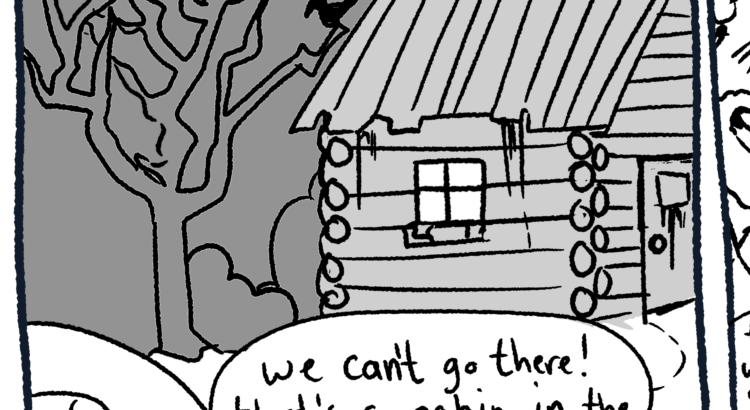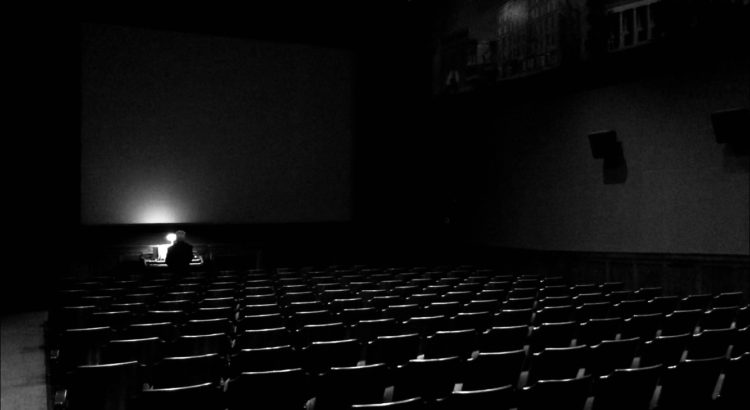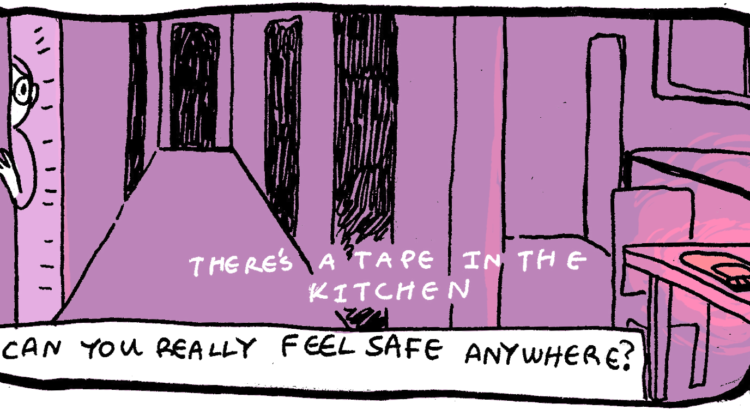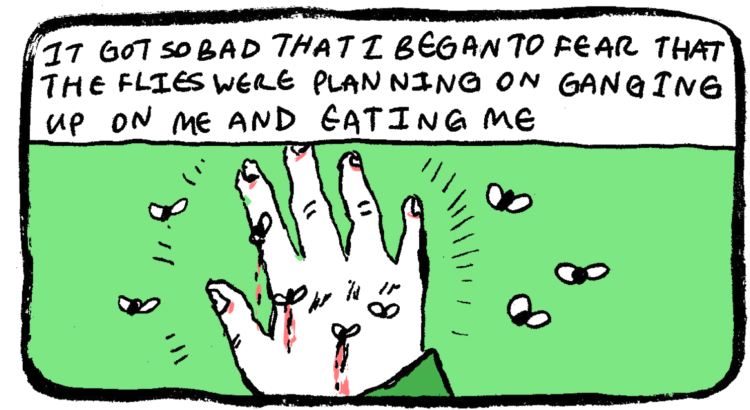Having just been Halloween and being a huge fan of the spooky season, horror movies, and generally scary thoughts, I found myself thinking a lot about doppelgängers. In case you’ve never heard of the term before, it simply means an apparition or double of a living person; literally an exact physical copy of a person. The concept of a doppelgänger can be found in various mythologies and cultures, usually with an insidious connotation of one who takes over the original person’s life. Of course I find this fascinating, for a variety of reasons which I’ll touch on, but most importantly I thought it would be interesting to present three different stories that feature doppelgängers, from television shows and movies, and draw some conclusion about what you should do if you ever find yourself face to face with your own doppelgänger.
 If you’ve been a reader of my posts for awhile you’ll recognize this first one: The Double, a film based off the original novel by Fyodor Dostoevsky. In the film, the main character played by Jesse Eisenberg is a simple man living in a mundane and grimy world, with a mediocre job and little aspirations beyond falling in love with a certain girl. However, suddenly a new employee is hired at his work, and it is dramatically revealed that it is his doppelgänger. Much to his surprise, nobody else notices that the new employee is identical, but the reason reveals itself to the audience from the beginning: this new version of the protagonist is more charming, personable, and cunning than the original. Gradually the doppelgänger starts to take over the original’s life, being promoted over him and winning over the girl almost instantly. The film ends with the original outsmarting the doppelgänger by relying on the unique fact that both of them are connected in feeling pain. I won’t spoil it beyond that, especially since it is a brilliant ending. However the original novel ends with the original going mad, being sent to an asylum, and the doppelgänger completely replacing him. The takeaway from this doppelgänger story: never let your doppelgänger dominate. Either get as far away as possible, or hope that you have some characteristic that gives you an advantage over them.
If you’ve been a reader of my posts for awhile you’ll recognize this first one: The Double, a film based off the original novel by Fyodor Dostoevsky. In the film, the main character played by Jesse Eisenberg is a simple man living in a mundane and grimy world, with a mediocre job and little aspirations beyond falling in love with a certain girl. However, suddenly a new employee is hired at his work, and it is dramatically revealed that it is his doppelgänger. Much to his surprise, nobody else notices that the new employee is identical, but the reason reveals itself to the audience from the beginning: this new version of the protagonist is more charming, personable, and cunning than the original. Gradually the doppelgänger starts to take over the original’s life, being promoted over him and winning over the girl almost instantly. The film ends with the original outsmarting the doppelgänger by relying on the unique fact that both of them are connected in feeling pain. I won’t spoil it beyond that, especially since it is a brilliant ending. However the original novel ends with the original going mad, being sent to an asylum, and the doppelgänger completely replacing him. The takeaway from this doppelgänger story: never let your doppelgänger dominate. Either get as far away as possible, or hope that you have some characteristic that gives you an advantage over them.

The next great doppelgänger movie is Enemy, starring Jake Gyllenhaal as the original protagonist. This movie is much more subtle in the beginning; the original is another plain and uninteresting guy, but as he’s watching a movie he sees an actor that looks just like him, his doppelgänger! He essentially tracks him down and the situation devolves from there. One thing I love about this film is how vague it is in identifying the doppelgänger; technically it never states which one is the original, if an original even exists! However, similar to The Double, the actor doppelgänger is much smarter and more charming, although they both have crucial flaws. In the end they switch lives, much for the benefit of the original and to the detriment of the doppelgänger. A lot of fascinating moral questions are raised, particularly about identity and the ethics of living a life that isn’t yours. The main thing to learn from this unusual story is to be cautious of the life of your doppelgänger; you never know what kind of life they are living. Also, don’t get involved in their romantic relationships, even if it seems like a great idea I can assure you that it is not.

Finally, the climax of this doppelgänger trifecta is a Netflix original show that I watched last week called Living With Yourself, starring Paul Rudd. It’s a short, jarring series that is a little bit shallower than the two previous stories, but offers something unique instead. It focuses on the protagonist Miles who has hit a rough patch in life, both at work and in his marriage. He takes the advice of a coworker and visits an elite spa, where he pays $50,000 to become a better, happier person. Long story short, he wakes up in a grave, eventually realizes that they cloned him and meant to kill him, and meets his clone who is once again an improved version of himself. However, this is where the story starts to differ: although the clone outperforms Miles at work, his wife prefers the original Miles, even after acknowledging his flaws and shortcomings. There is certainly a lot of conflict between the two as they take turns living the same life, which leads up to a dramatic climax where the audience is led to believe that only one of them will live. This is my favorite part; it raises so many questions about human worth and life, specifically about which Miles deserves to live and why, and that is such a hard question to solve with how the show portrays them both. In the end, they end up deciding to all live together as one family, which I personally found a little disappointing, but I appreciate how it diverges from the other two stories. The moral here: play to your strengths and be authentic, it helps to differentiate yourself from your doppelgänger so people treat you as different people. Keep in mind as well that hypothetically you could all coexist peacefully as well.
Overall, I hope you can appreciate these stories as much as I do; the concept of a doppelgänger leads down so many different roads, each one raising its own philosophical and moral questions, all of which I love. I definitely recommend you check all of these out as well, I would love to hear some different thoughts and opinions about how to survive a doppelgänger. Besides that, I’ll leave you with a few parting thoughts and ideas. What do these stories tell us about ourselves and our own identities and personalities? Perhaps the doppelgänger simply represents the other side of our psyche, one which we would rather not acknowledge? How does understanding a doppelgänger help us to deal with our own inner conflicts? What is the best way to survive these mental doppelgängers? And finally, notice how all three stories feature doppelgängers with unique origins: supernatural, vague, and cloning. How does the origin of a doppelgänger affect the conflict between them and the original?




 The Lighthouse is entirely black and white and is presented in a square aspect ratio, much like classic movies or shows like The Twilight Zone (a personal favorite of mine). This gives it an aesthetic that stands out from other horror movies today, and was largely what peaked my interest when I saw the trailer. It feels so gritty and stylized, like an old documentary that was never released, which pairs perfectly with the story of two grizzly men keeping watch over a lighthouse on a rock in the middle of the ocean, completely stranded and abandoned. That grit creeps into the characters, especially the older lighthouse keeper Tom, played by Willem Dafoe, who completely embodies the idea of a sea-worn sailor. This pairing of visual style and complementary characters makes the story feel so authentic: even though it seems so far removed from reality, it felt like I was sitting at the table with them, eating dinner and being dragged into their arguments. I didn’t realize the effect while I was watching it, which I think is further proof of just how convincing it truly was.
The Lighthouse is entirely black and white and is presented in a square aspect ratio, much like classic movies or shows like The Twilight Zone (a personal favorite of mine). This gives it an aesthetic that stands out from other horror movies today, and was largely what peaked my interest when I saw the trailer. It feels so gritty and stylized, like an old documentary that was never released, which pairs perfectly with the story of two grizzly men keeping watch over a lighthouse on a rock in the middle of the ocean, completely stranded and abandoned. That grit creeps into the characters, especially the older lighthouse keeper Tom, played by Willem Dafoe, who completely embodies the idea of a sea-worn sailor. This pairing of visual style and complementary characters makes the story feel so authentic: even though it seems so far removed from reality, it felt like I was sitting at the table with them, eating dinner and being dragged into their arguments. I didn’t realize the effect while I was watching it, which I think is further proof of just how convincing it truly was.





